
Dr. Juan Emmanuel Dewez, Chief of Health & Nutrition, UNICEF- Ghana
Purple for Prematurity Summit 2024

A fully integrated mother-and-baby model of care requires significant changes, including cultural, organizational, architectural, and funding transformations."
Purple for Prematurity Summit 2024

Selina Bentoom, Founder/Executive Director, (AFPNC)
Purple for Prematurity Summit 2024

''Prematurity is a leading cause of death. It's time to offer a multisectoral approach, where parents, government, and the community work together as equal partners to address prematurity and advocate for increased investment to improve newborn care, especially for babies born too soon, sick and small in Africa."
Purple for Prematurity Summit 2024

Mr Paul Fordjour Jnr (Parent Representative)
Purple for Prematurity Summit 2024

Head of Operation, Plasito Ltd
"We must work together to raise awareness to drive social and behavioural change. Therefore, parents and families affected by prematurity should advocate when needed, voice their concerns when appropriate, and, above all, collaborate with all stakeholders involved to tackle future challenges in prematurity. "
Purple for Prematurity Summit 2024
Subscribe to our Newsletter
Contact us to save a preterm baby
More Information about AFPNC
Preterm Birth
Preterm birth happens when a baby is born too early—before the mother has been pregnant for the full 9 months (or 37 weeks). Normally, babies are born around 40 weeks, but a preterm baby comes out earlier, sometimes as early as 6 or 7 months.
Why Is Preterm Birth Important?
Babies need time in the mother’s belly to grow and get strong. If they come out too early, their body parts (like their lungs, heart, or brain) might not be fully ready to work properly. This can make it harder for them to breathe, eat, and fight off sicknesses after birth.
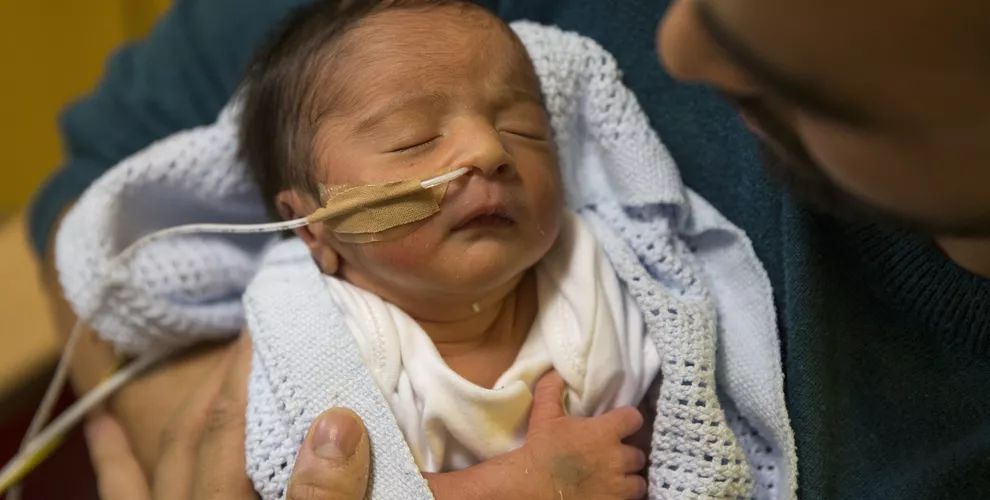




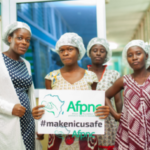







Advancing Preterm and Newborn Care in Africa
The African Foundation for Premature Babies and Neonatal Care (AFPNC) is recognized as the leading pan-African organization and network dedicated to advocating for the needs and rights of preterm and newborn infants, along with their families. Our work extends across multiple sectors and regions to ensure that the most vulnerable members of our society, preterm babies, receive the care, attention, and resources they need for survival and healthy development. AFPNC brings together parents, healthcare professionals from various disciplines, researchers, and policy advocates, all united by a shared commitment to improving the health outcomes and quality of life for preterm and newborn children across Africa.
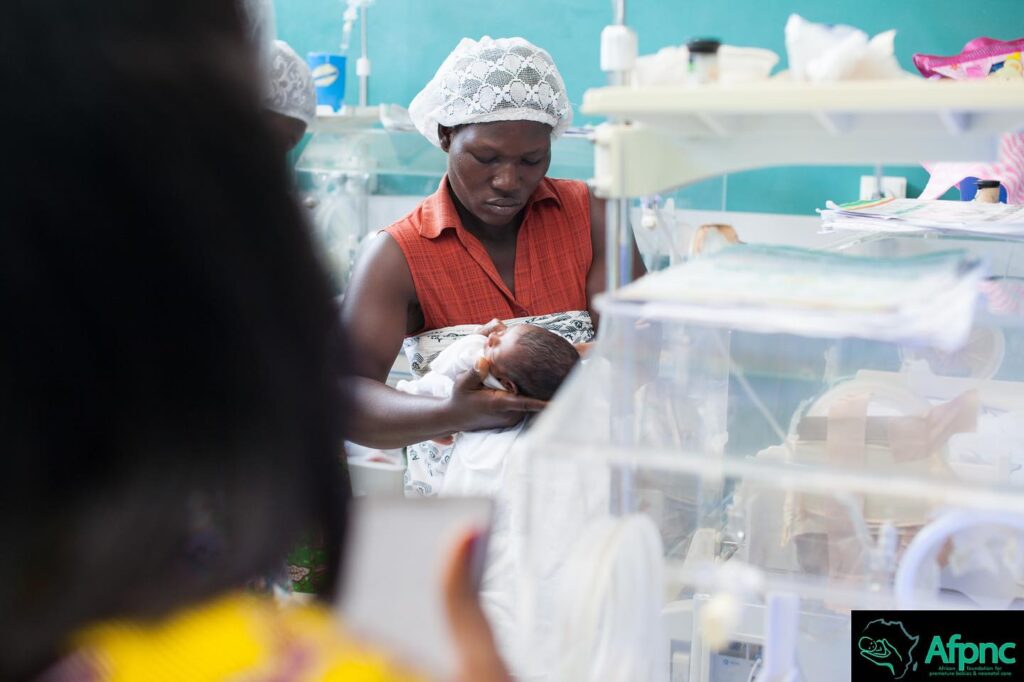
Our vision is centered on the belief that every baby, regardless of the circumstances of their birth, deserves the healthiest possible start in life. This vision fuels our mission to address the complex challenges faced by preterm infants and their families. We recognize that preterm birth rates remain a significant public health concern globally, particularly in Africa. According to the World Health Organization, approximately 15 million babies are born preterm each year. Of those, over 1 million die due to complications, making it crucial to lower these numbers through prevention and improved care. Through collaborative efforts, we aim to raise awareness about these challenges and work toward reducing preterm birth rates through education, research, and community outreach.
Our initiatives are focused on ensuring that preterm infants receive the highest standard of care, including medical treatment, emotional support for families, and access to cutting-edge research that guides best practices in neonatal care. Studies such as those from UNICEF and the Global Alliance to Prevent Prematurity and Stillbirth emphasize the importance of early intervention and ongoing family support in improving long-term health outcomes for preterm infants. Additionally, we emphasize the importance of ongoing support for families who care for preterm infants, as this has been shown to significantly improve long-term outcomes for both the child and their caregivers. According to the March of Dimes, community-driven support programs, combined with proper care, dramatically enhance the survival rates of preterm infants.
Through efforts like the AFPNC’s Purple Basket project, we aim to equip families with essential resources and knowledge to give preterm babies the healthiest possible start in life. As organizations like the Bill & Melinda Gates Foundation have demonstrated, providing practical support and care to mothers and families in these critical early moments can lead to improved survival rates and overall well-being for preterm babies. By addressing the medical, social, and emotional needs of these families, AFPNC is making meaningful strides in transforming the narrative surrounding preterm births and neonatal care in Africa.
Purple Basket Project
The Purple Basket Project is a charitable initiative aimed at raising funds to support mothers of preterm babies who are in need. The funds collected are used to procure essential items that these mothers require to care for their preterm infants. These items may include things like baby clothes, feeding supplies, diapers, medical equipment, and other necessities that can ease the financial burden on families who are already facing the challenges of caring for a preterm baby.
By providing these resources, the Purple Basket Project plays a critical role in ensuring that both the mothers and their preterm infants receive the necessary care and support, helping to improve the health outcomes and well-being of these vulnerable babies
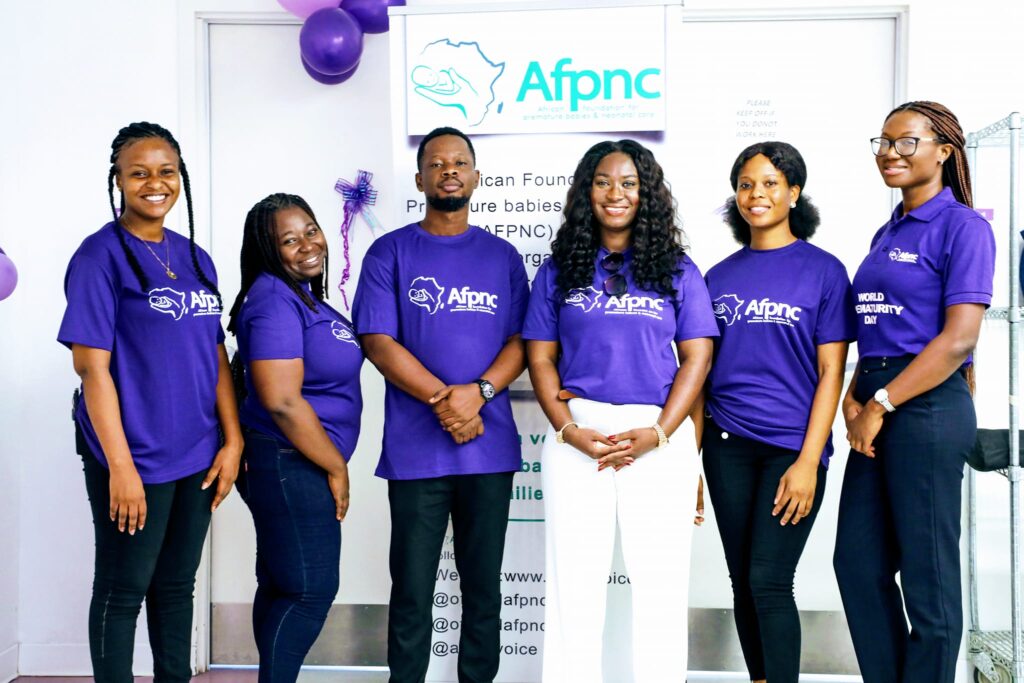
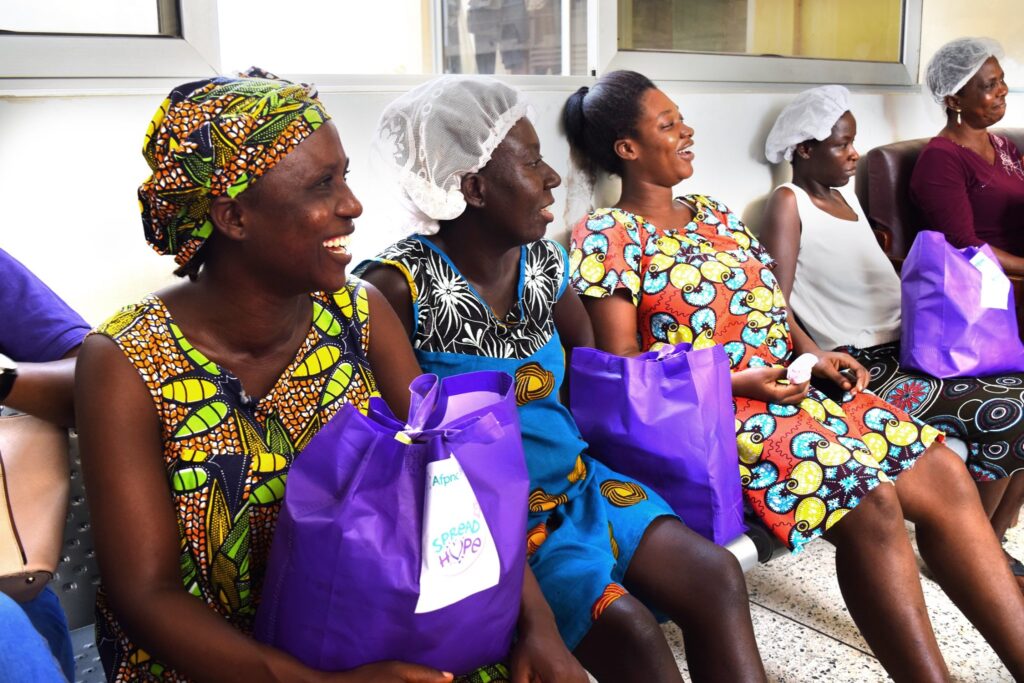
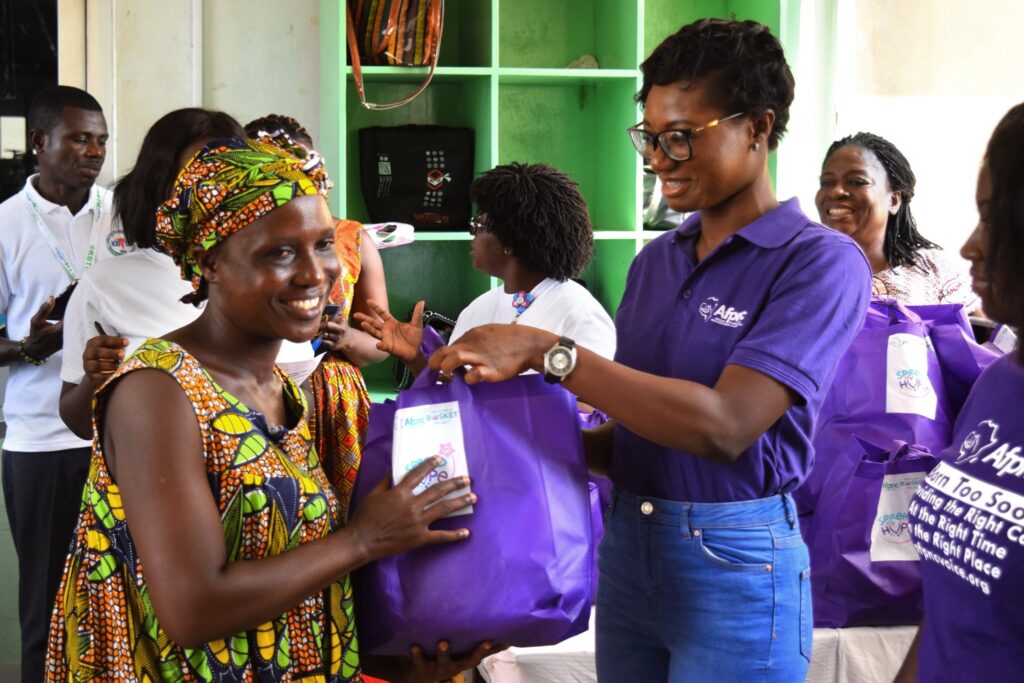
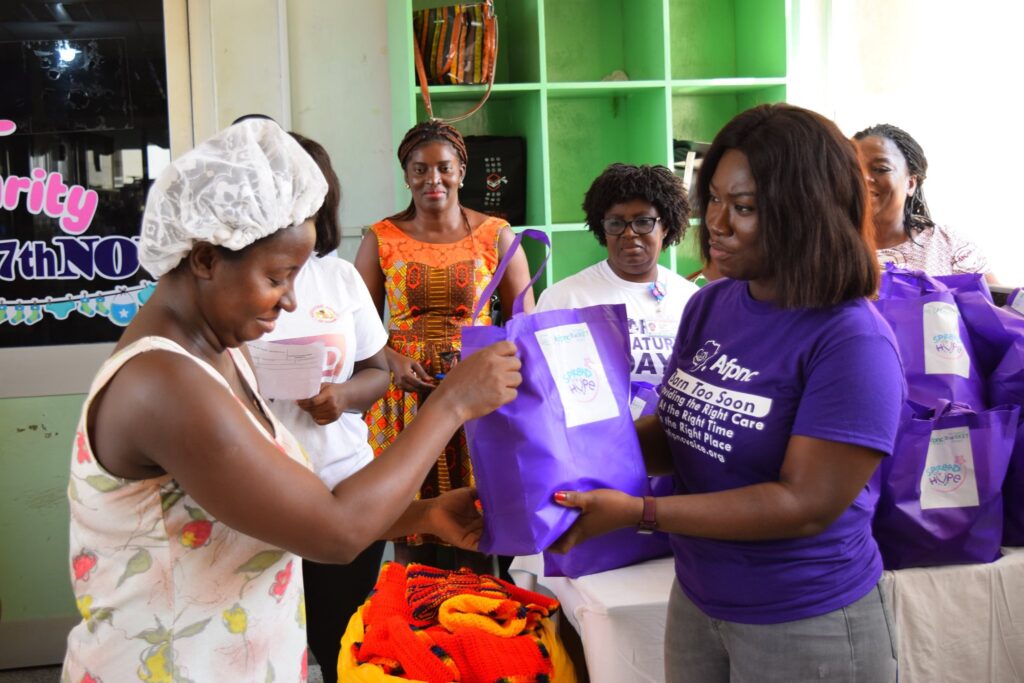
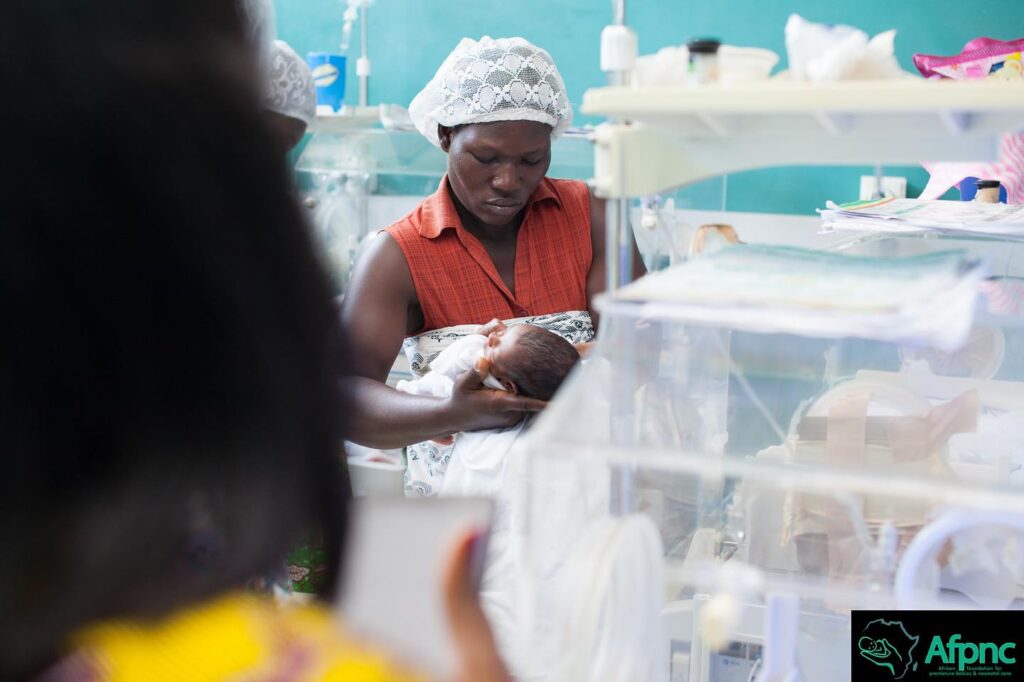
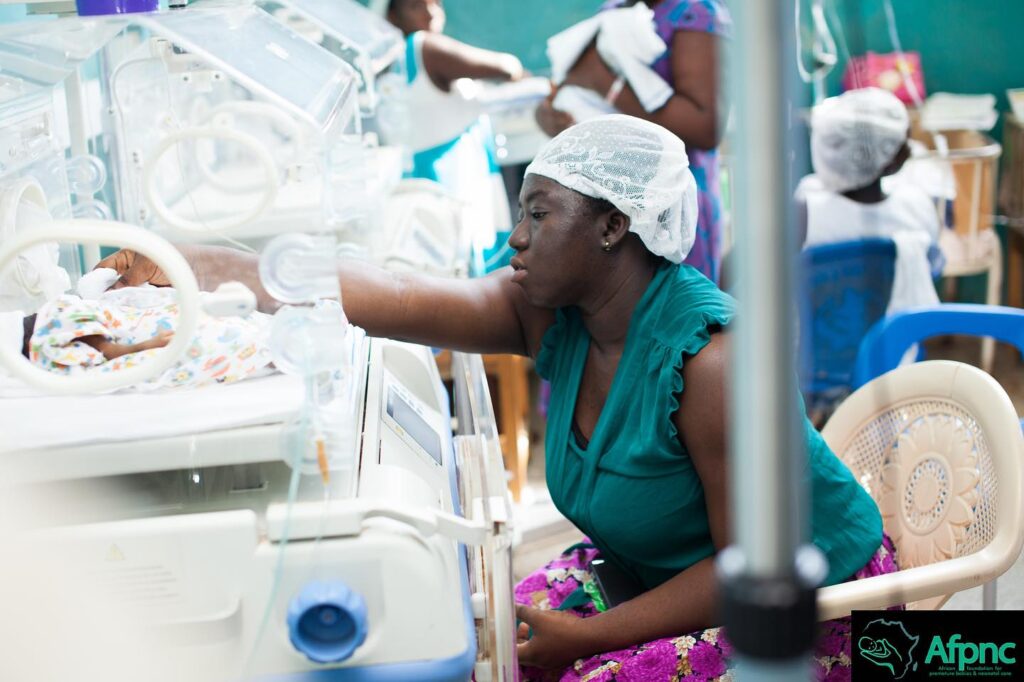
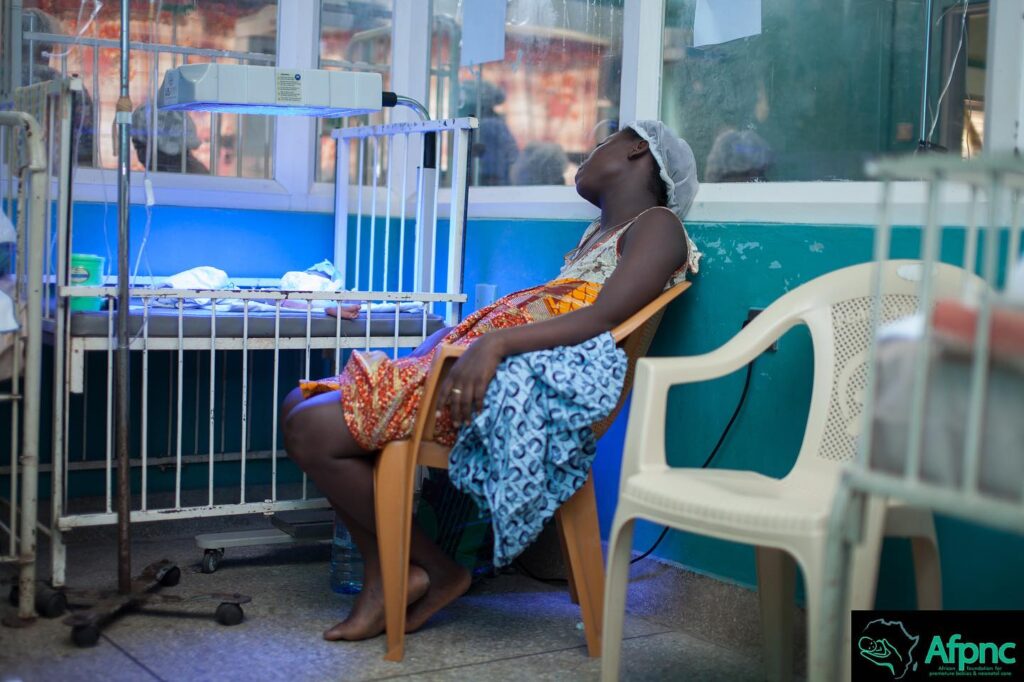
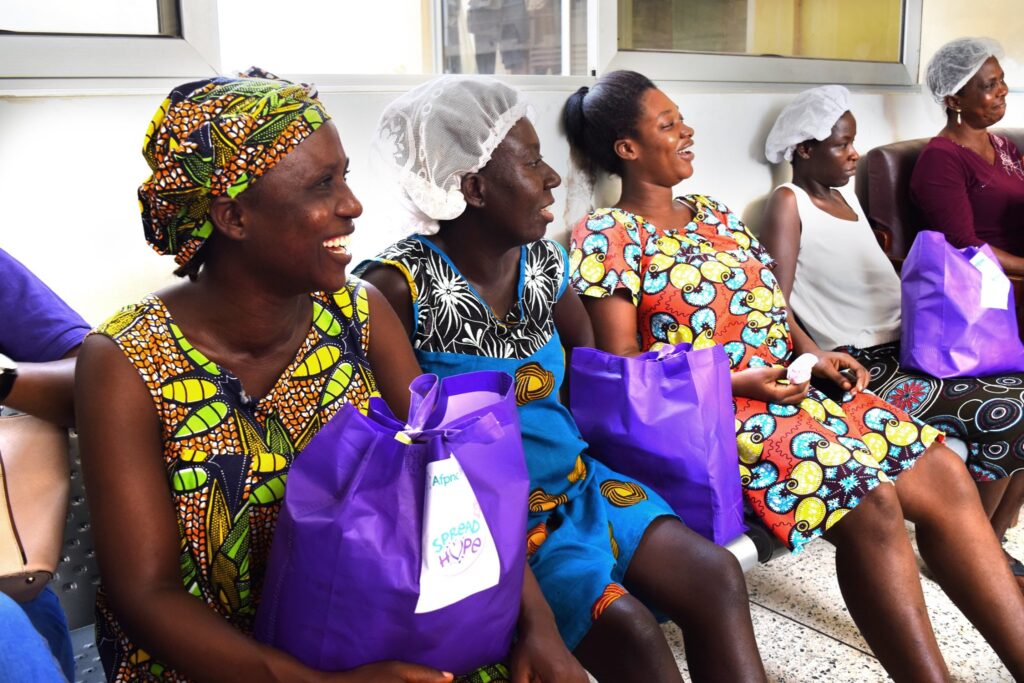
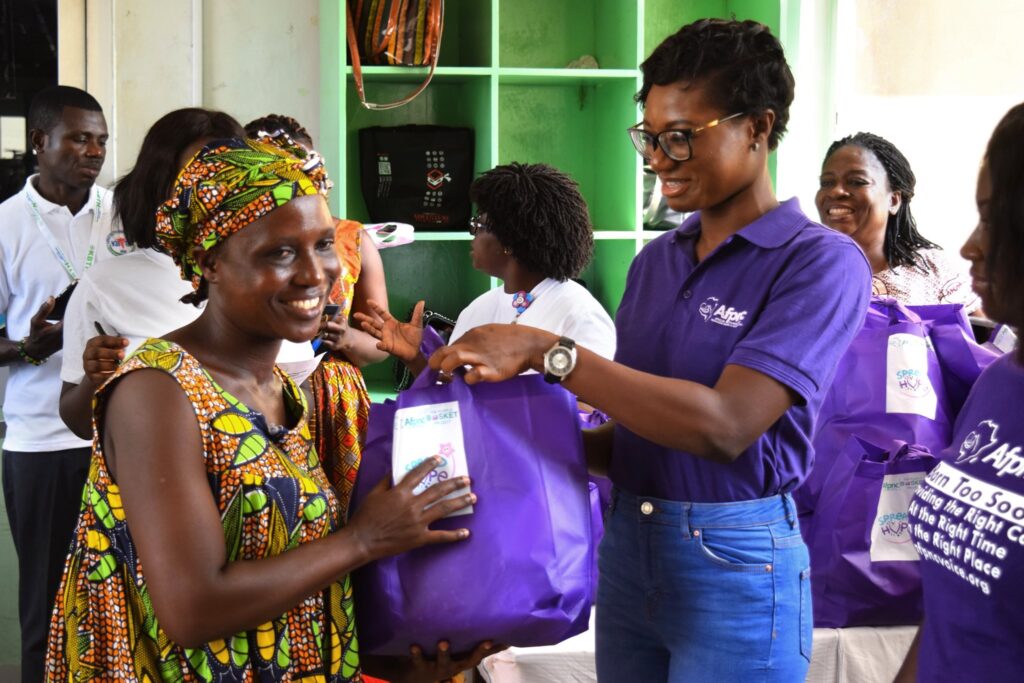
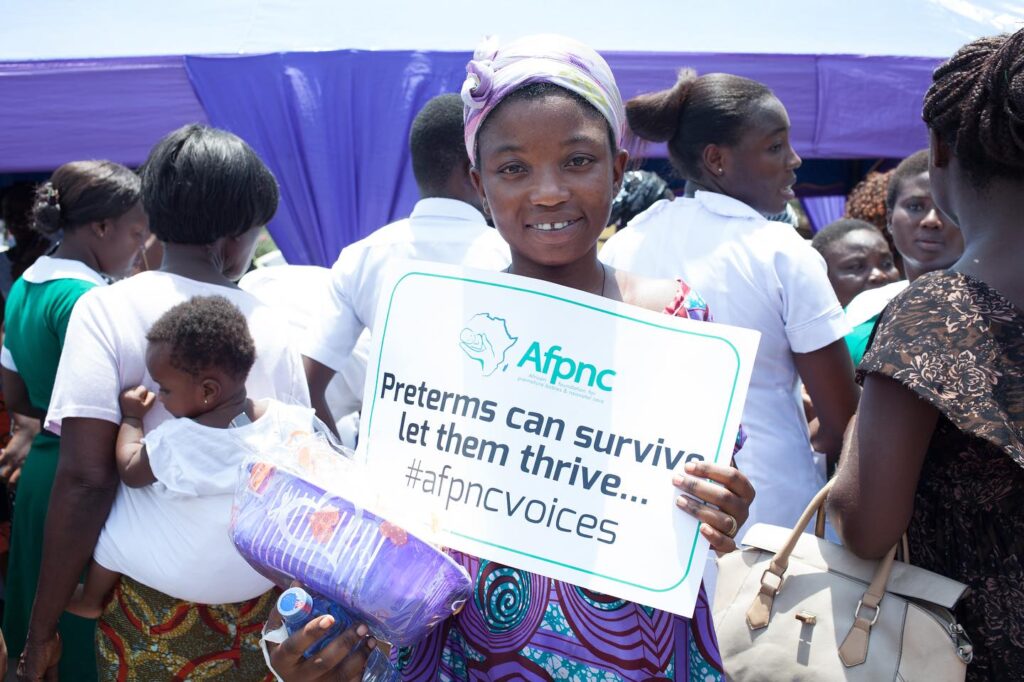
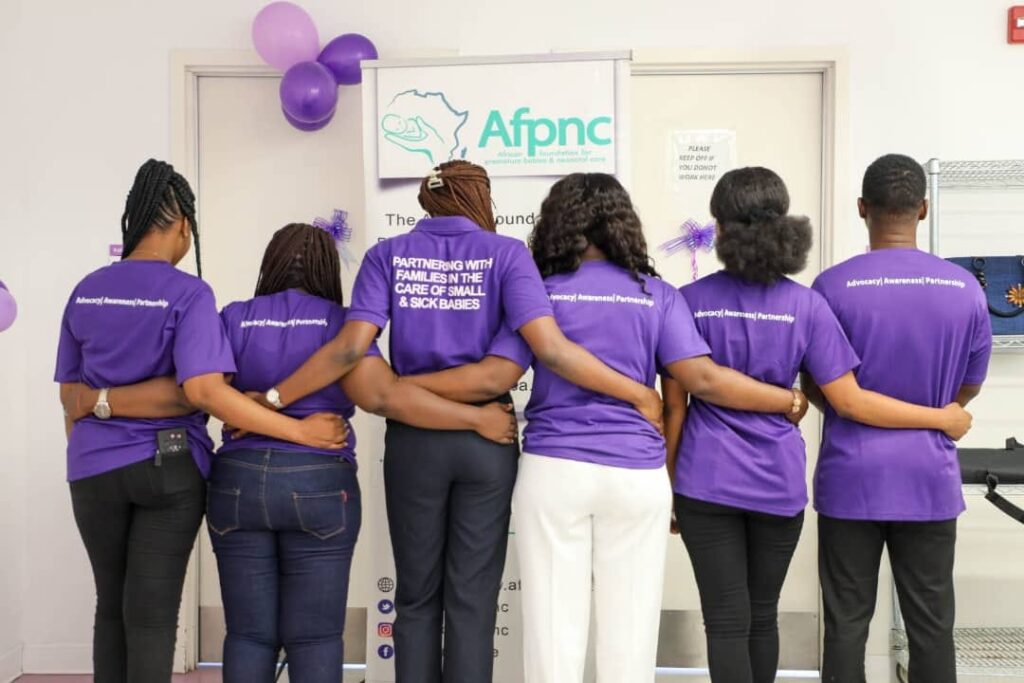
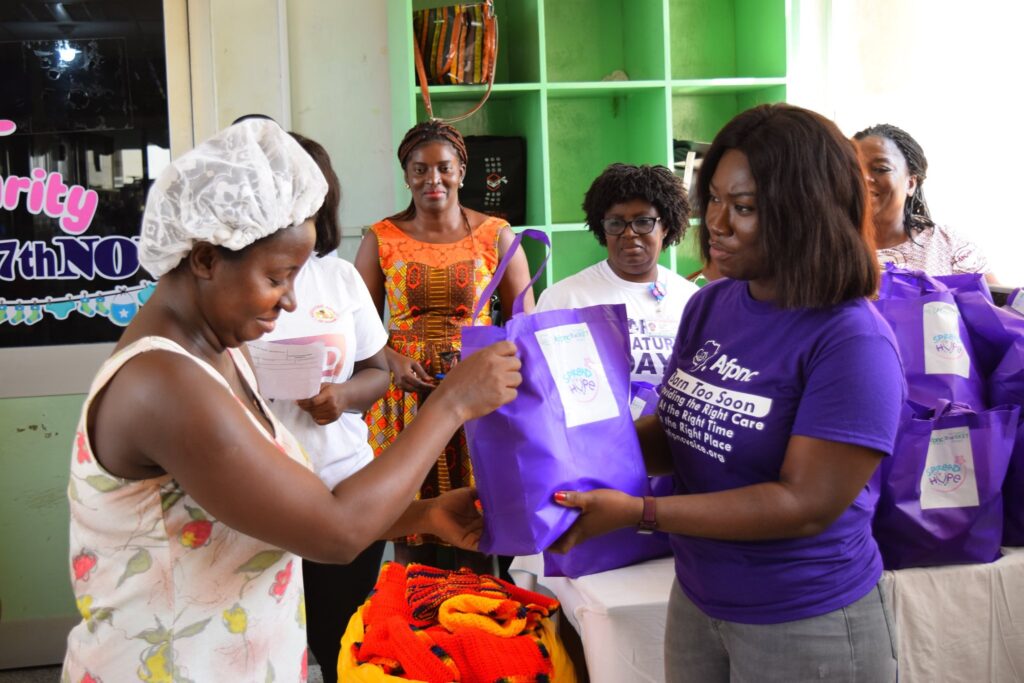




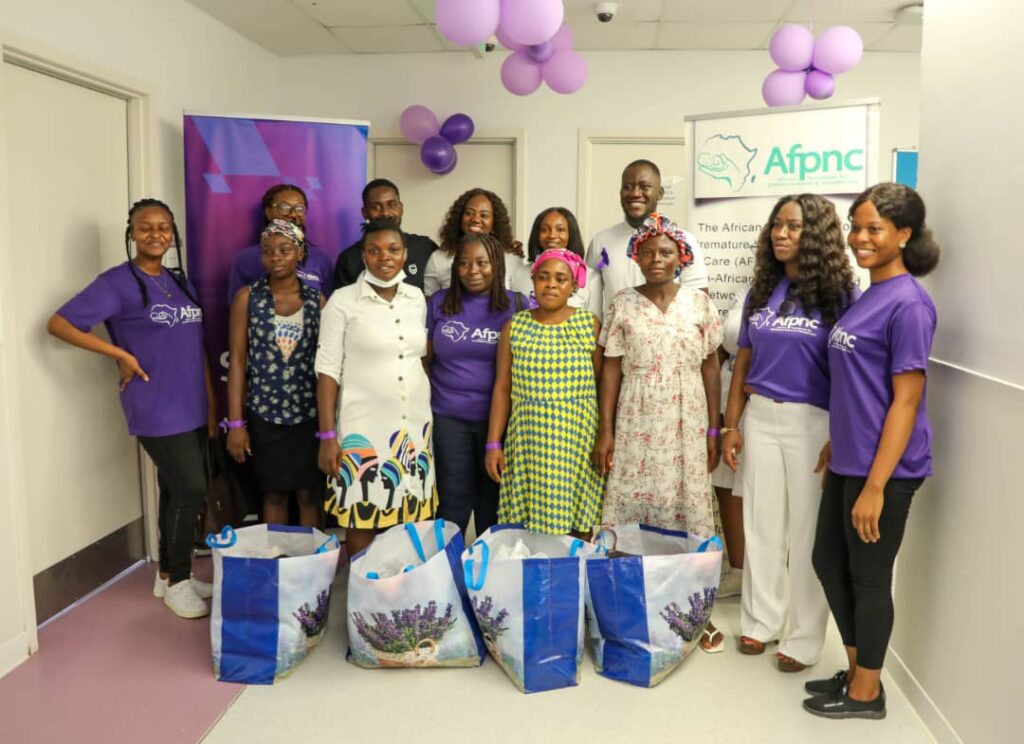


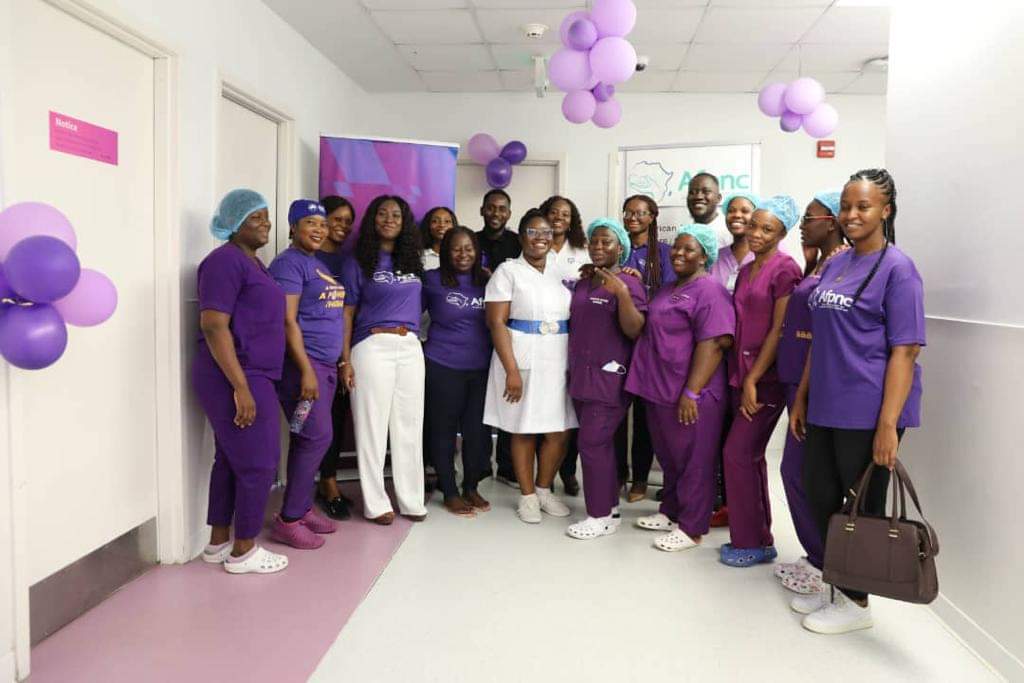
Frequently Asked Questions

Selina Bentoom
CEO/ Founder
- Position :Executive Director
- Experience:4 Years
- Phone:+233 30 294 0604
- Email: selina@afpncvoice.org
She is a dedicated advocate for maternal and newborn health, particularly focusing on improving care for preterm babies in Africa. Selina has been recognized for her work, receiving awards for her efforts in the field and has led various initiatives, such as distributing vital neonatal equipment and offering psychological support for families during challenging times like the COVID-19 pandemic
Get in touch with us
Families of preterm babies often go through an emotional and challenging journey.
By spreading awareness and taking action, we can help ensure these little fighters get the care and attention they deserve.
